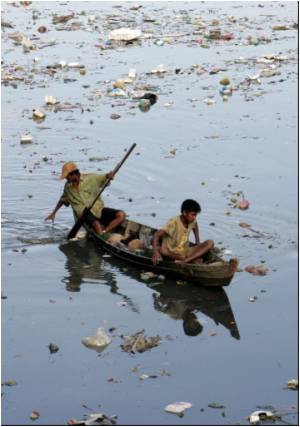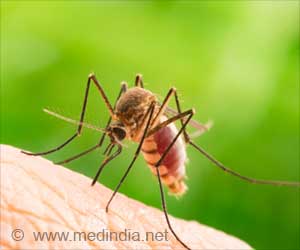In a sleepy, rural settlement in the far north of army-ruled Myanmar, farmer Tu Raw anxiously cuddles his young son and baby daughter, both coughing and feverish with the symptoms of malaria.

"We are waiting for medicine," said the 29-year-old, shaded from the fierce tropical heat by his wooden hut, as chickens squawked nearby.
Tu Raw, whose name AFP has changed for his safety, does not know when the next batch of malarial drugs will arrive and he owns no means of transport to get to the nearest clinic in Waimaw township.
In military-ruled Myanmar, saying anything seen as critical of the authorities can have serious consequences.
"We wait because we don't have enough money," said the worried father, who has resorted to the traditional method of vigorously scrubbing the skin to relieve pain, leaving maroon, whip-like marks on his three-year-old boy's back.
Malaria is the country's most rampant disease, infecting up to 10 million people and possibly killing tens of thousands each year, according to Frank Smithuis, a malaria expert who has been in Myanmar for 16 years.
A local co-ordinator at the KBC said his group only had the resources to assist about five percent of the Kachin population in the fight against malaria.
Non-governmental organisations such as the KBC are crucial in a country where, according to a United Nations report earlier this year, the military regime spends just 0.5 percent of gross domestic product on health.
And despite being one of the least developed countries after nearly five decades of army rule, overseas development aid trickling into Myanmar is among the lowest in the world.
World Bank figures show nearly a third of the 50 million-strong population lives below the poverty line, while the mortality rate of children under five is almost double the world average, according to the World Health Organisation.
"It's a very hard life. We are not happy," said one of Tu Raw's neighbours, a 48-year-old woman, as she tended to her malaria-infected daughter, aged 10, huddled in the corner of their thatched bamboo home.
Aside from malaria, hundreds of thousands in Myanmar also suffer from a range of other ills including HIV/AIDS, tuberculosis, dysentery and malnutrition.
While some public healthcare -- such as malaria tests and treatment -- is supposed to be free, often clinics are not supplied with drugs and patients have to go to local pharmacies.
"Almost 70 percent of healthcare is provided by the private sector, but this is of varying quality and not affordable for a big group," said a foreign aid worker in Myanmar, who declined to be named owing to political sensitivities.
He said non-governmental aid groups are not allowed access to hospitals, which are understaffed in rural areas.
Despite the critical humanitarian situation, political parties have only mentioned health policy in vague terms, if at all, ahead of controversial November 7 elections that the main pro-junta party is expected to win.
Maung Zarni, a research fellow on Myanmar (Burma) at the London School of Economics, said there was a "complete absence of space to seriously discuss the fundamental issues" such as healthcare.
"The problem is not that people don't want to raise policy issues, it's that the generals who make decisions are not open to any policy discussion," he said.
The cause of the healthcare crisis is not low revenues. The regime rakes in cash from exports of natural resources, such as gas, but 80 percent of state spending goes on the army and state-owned enterprises, according to the UN.
Although humanitarian groups try to fill the gaps in the healthcare system, it is "not remotely sufficient for what is needed," the aid worker said.
In the past, overseas governments have scaled down aid in protest at Myanmar's lack of democracy, human rights abuses and the suppression of the opposition, or felt forced to pull out because of the junta's tight controls.
The country receives about four dollars per person a year in foreign aid, compared with about 38 dollars per person in Cambodia and 50 in Laos, according to Smithuis, the former Myanmar director of Medecins Sans Frontieres.
He called for a major injection of foreign funds following signs that new drug-resistant malaria has emerged in eastern Myanmar, which he said was potentially a "very serious" threat.
"It is in practice a humanitarian boycott, for purely political reasons. This is a scandal," said Smithuis. "The needs are high and the humanitarian boycott is only harming the people of Myanmar."
Source-AFP
 MEDINDIA
MEDINDIA




 Email
Email







